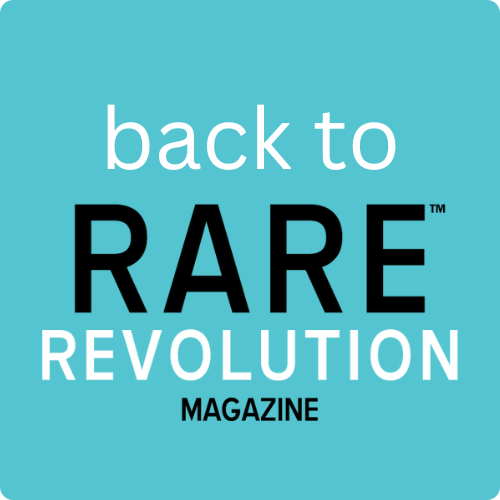The power of words: How should we write about science?
Estimated reading time: 6 minutes

“A good piece of writing will leave the reader feeling clever, not the author”, is the best piece of advice I have ever received as a writer.
It can feel satisfying to write in long, elegant prose, especially when writing about science. It’s almost as if plain and simple language doesn’t do justice to the brilliant and complicated research behind it. ‘Used’ becomes ‘leveraged’, ‘help’ becomes ‘facilitate,’ and before we know it, a clear, digestible sentence has become a tongue twisting paragraph of three-syllable synonyms.
Despite how rewarding it might feel to write with complex words, it is important to question whether they truly serve the purpose of a piece. If the aim of our writing is to convey information to the reader, then shouldn’t a defined, clearly communicated message be the priority?
The average reading age in the UK is 9-11 years old, according to NHS guidance. Whilst this may sound like a shocking statistic, it highlights just how vital accessible and simple writing is, particularly in science and medicine.
The human cost of complexity
No one wants to feel confused or inadequate after reading a piece of writing, especially not when it relates to their health. For patients and families, communication can play a defining role in their healthcare experience, with understanding—or misunderstanding— information having potentially life-altering consequences.
After struggling to see the blackboard at school, Tessy was diagnosed with Marfan syndrome, a rare genetic condition that affects the skeleton, eyes and cardiovascular system. However, it wasn’t until age 27 that Tessy truly understood the severity of Marfan syndrome, when she suffered heart failure and had to undergo lifesaving emergency surgery.
“No one had properly explained to me what Marfan syndrome was. Maybe they assumed I knew what it meant because I didn’t ask many questions. I thought it was just a sight condition, I didn’t realise it could affect my heart.” Tessy
The experience was terrifying for Tessy, and she was left feeling overwhelmed and scared about what it would mean for the rest of her life. She emphasises the importance of having clarity about her condition, stating the profound impact it had on her vision of the future.
“The cardiologist gave me information that I could understand. He explained that I could live my life normally, and still do things I love, like swimming in the sea. There were just some adjustments I needed to make, like getting heart check-ups and not lifting weights.
He gave me a leaflet of information that was clear, direct, and gave me everything I needed to know without unnecessarily complicated details. Having this knowledge allowed me to make important decisions about my life. It completely changed my view.”
Tessy’s journey highlights the importance of clear communication, and how assuming a medical understanding from patients can have deep or even dangerous implications. Clear informational resources allowed Tessy to feel in control again and to make informed decisions about her life, a right that we all should be able to exercise, regardless of our scientific education.

Beyond the patients
Accessible writing is not only vital for patients, but also highly valuable for other stakeholders in the scientific space. Healthcare professionals, funders, or even researchers with varying specialisms can all benefit from simple language.
A2012 research studyshowed that 80% of people prefer sentences written in plain English, and this includes experts with a high level of specialised knowledge. The study also revealed that people with a higher education have an even stronger preference for plain English, with those who spend lots of time reading documents preferring language that is straightforward.
Out of the two sentences below, which do you prefer to read?
“The therapeutic intervention was administered to the patient cohort in alignment with the pre-established clinical protocol.”
Or:
“The group of patients was given treatment according to the planned medical protocol.”
Though the time it takes to process these two sentences might differ by a matter of seconds, this small difference adds up, especially in reports or papers containing several hundred sentences.
In a conversation with Melissa Haynes Agoro, who works in bioethics and policy, she emphasises the value of using simple language in the industry, even for those with scientific backgrounds.
“The more advanced you get, the more specialised you get, so even if you’re an expert in neurological conditions, for example, it doesn’t mean that you’re familiar with say, the science of microbiomes.
In bioethics and policy, we interact a lot with scientists and researchers who all specialise in their specific topics, but we still need to communicate with those academics using language we all understand.”
Melissa went on to explain how even those who can understand more complex terminology, don’t necessarily want to read it day-to-day.
“We often communicate with policy makers, who won’t necessarily have time to engage with really complex language.
Even within our industry, different organisations use different terms or acronyms, so there is value in using plain language to ensure we’re not miscommunicating anything.”
But I AM writing simply…
Working amongst experts or within our set organisations, it is easy to forget what is and is not common knowledge. Surrounded by colleagues who use ‘HDR’ or ‘bioinformatics’ in day-to-day discussions, leaves lots of us thinking that our writing is far simpler than reality.
Achieving a balance of accuracy and clarity can be challenging. It is a skill that takes learning, practice and feedback, but there are several quick adjustments that can have a significant overall impact.
A great place to start is by substituting longer, complex words for simpler alternatives. How many times have we read a ‘utilised’, or ‘exploited,’ when a simple ‘used,’ would have sufficed? Tools such as theHemingway Editorcan be helpful to gauge the reading level of a piece, to ensure our writing is both clear and engaging for its intended audience.
Another common habit in scientific writing is using the passive voice instead of the active voice. For example, writing ‘The data was collected by researchers’ instead of ‘Researchers collected the data.’ According to the University of York Academic Language guide, sentences written in the active voice, like the second example, are easier for readers to understand.
Finally, a quick yet significant fix is expanding acronyms, or considering whether it is necessary to use them at all. Though familiar acronyms such as ‘the NHS’ or ‘DNA’ can be helpful, unfamiliar acronyms can leave people feeling isolated and create an additional barrier to accessing information.
The task of changing the way we write may feel daunting at first, but there are several trusted resources out there to support us, like theGovernment Communication Service.
It is vital that the industry as a whole continues striving to become more accessible, and to leave no one behind with our writing. After all, scientific research affects the world we all live in, and everyone deserves to understand it if they want to.
Connect with Florence
in the loop lets you stay informed with all the latest issues from the world of RARE. To access more in the loop articles click below.

